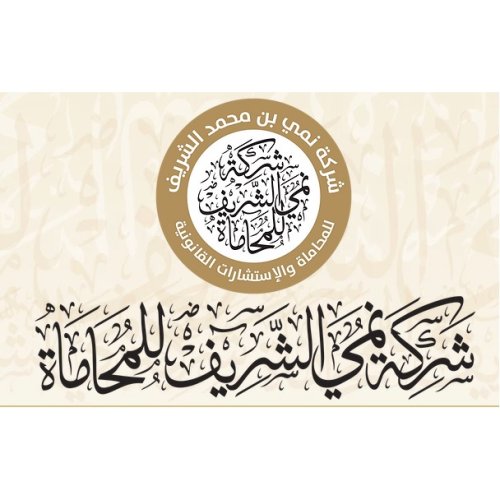Best Energy Regulatory Law Lawyers in Makkah
Share your needs with us, get contacted by law firms.
Free. Takes 2 min.
List of the best lawyers in Makkah, Saudi Arabia
About Energy Regulatory Law in Makkah, Saudi Arabia
Energy Regulatory Law in Makkah, Saudi Arabia refers to the body of legal rules and government policies that oversee the production, distribution, and use of energy resources such as electricity, water, gas, and renewable energy within the region. These laws are designed to ensure that energy is managed efficiently, that the environment is protected, and that there is compliance with national initiatives such as Vision 2030, which aims to diversify the Kingdom’s energy mix. The Saudi Energy Regulatory Authority and similar bodies play a central role in setting the standards and policies that must be followed by all entities involved in generating, transmitting, and selling energy in Makkah.
Why You May Need a Lawyer
Individuals and businesses may encounter several situations where legal assistance in energy regulatory matters becomes necessary. For example, you may need a lawyer if you are developing a new energy project, experiencing a dispute with an energy supplier, or facing regulatory compliance issues with governmental agencies. Legal guidance can also be essential if you are negotiating contracts related to energy supply or infrastructure, seeking to understand your rights and obligations for using or producing energy, or addressing environmental regulatory concerns. Navigating the complex landscape of energy regulations in Saudi Arabia requires expertise to ensure your interests are protected and all legal requirements are met.
Local Laws Overview
Saudi Arabia’s legal framework for energy regulation is governed by several national laws and regulatory bodies, with the Ministry of Energy and the Saudi Energy Efficiency Center setting the foundation for most policies. In Makkah, these standards are strictly enforced to maintain efficiency, support sustainable development, and protect consumers. Key aspects include licensing requirements for energy providers, regulations on energy pricing and tariffs, renewable energy project guidelines, grid access rules, and specific environmental considerations. The Saudi Electricity Company operates under government oversight, and new entrants must conform to rigorous registration and operational standards. Non-compliance can lead to penalties, fines, or even suspension of operations.
Frequently Asked Questions
What is Energy Regulatory Law?
Energy Regulatory Law involves the statutes and regulations governing the production, distribution, consumption, and pricing of energy resources such as electricity and gas.
Who regulates energy laws in Makkah?
The Ministry of Energy, the Electricity and Co-generation Regulatory Authority (ECRA), and local government agencies oversee the regulation and enforcement of energy laws in Makkah.
Do I need a license to generate or sell energy in Makkah?
Yes, any company or individual wishing to generate, distribute, or sell energy in Makkah must obtain the appropriate licenses from the regulatory authorities.
How does energy pricing work in Makkah?
Energy pricing is regulated by government authorities to ensure fairness and prevent price manipulation. Tariff adjustments and structures must comply with official guidelines.
What happens if I violate energy regulations?
Violations can result in administrative penalties, financial fines, legal enforcement actions, or loss of licensing rights, depending on the severity of the infraction.
Are there incentives for renewable energy in Makkah?
Yes, the Saudi government encourages renewable energy investments by offering incentives and streamlined regulatory processes for projects that comply with Vision 2030 targets.
Can foreign companies participate in Makkah's energy sector?
Foreign entities can participate but must adhere to Saudi regulations, obtain appropriate approvals, and in certain cases, establish partnerships with local firms.
What environmental regulations affect energy projects?
Energy projects are subject to national and local environmental laws, including mandatory environmental impact assessments and compliance with sustainability standards.
How are disputes in the energy sector resolved?
Disputes are typically managed through negotiation, regulatory mediation, or litigation in administrative or commercial courts, depending on the nature of the issue.
Can consumers make complaints against energy providers?
Yes, consumers have the right to submit complaints to regulatory authorities if they face unfair treatment, unreasonable service disruptions, or tariff disputes.
Additional Resources
- Ministry of Energy, Saudi Arabia - Primary government body overseeing energy policies and regulations. - Electricity and Co-generation Regulatory Authority (ECRA) - Responsible for issuing licenses and monitoring compliance in the electricity and water sectors. - Saudi Energy Efficiency Center - Offers guidance on energy efficiency standards and best practices. - Saudi Electricity Company - Main operator and point of contact for electricity services in Makkah. - Makkah Municipality - Local authority responsible for enforcing relevant environmental and municipal regulations.
Next Steps
If you require legal advice or assistance in the field of Energy Regulatory Law in Makkah, consider taking the following steps:
- Clearly identify your specific energy-related legal issue or concern. - Gather all relevant documentation, permits, licenses, contracts, or correspondence. - Seek a qualified legal specialist who has experience in energy regulatory matters in the Kingdom of Saudi Arabia. - Arrange a consultation to discuss your case, and ensure all your questions are answered. - Stay informed of ongoing updates to local laws and regulations related to energy. - Act promptly, as regulatory matters often involve strict deadlines and procedural requirements.
Sound legal advice tailored to your particular energy law issue can save time, reduce risk, and ensure full compliance with local requirements in Makkah, Saudi Arabia.
Lawzana helps you find the best lawyers and law firms in Makkah through a curated and pre-screened list of qualified legal professionals. Our platform offers rankings and detailed profiles of attorneys and law firms, allowing you to compare based on practice areas, including Energy Regulatory Law, experience, and client feedback.
Each profile includes a description of the firm's areas of practice, client reviews, team members and partners, year of establishment, spoken languages, office locations, contact information, social media presence, and any published articles or resources. Most firms on our platform speak English and are experienced in both local and international legal matters.
Get a quote from top-rated law firms in Makkah, Saudi Arabia — quickly, securely, and without unnecessary hassle.
Disclaimer:
The information provided on this page is for general informational purposes only and does not constitute legal advice. While we strive to ensure the accuracy and relevance of the content, legal information may change over time, and interpretations of the law can vary. You should always consult with a qualified legal professional for advice specific to your situation.
We disclaim all liability for actions taken or not taken based on the content of this page. If you believe any information is incorrect or outdated, please contact us, and we will review and update it where appropriate.











